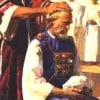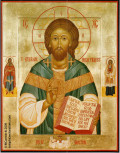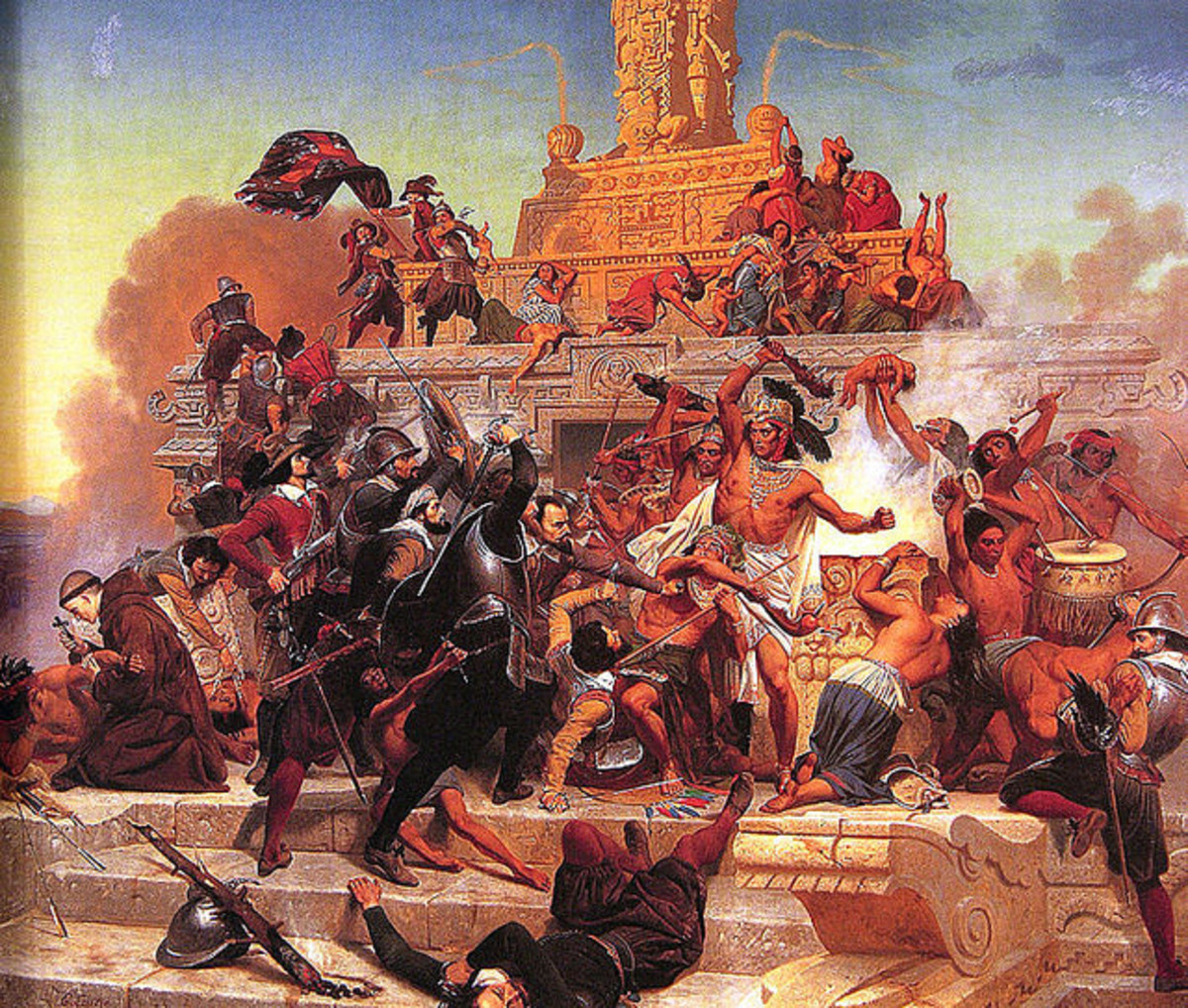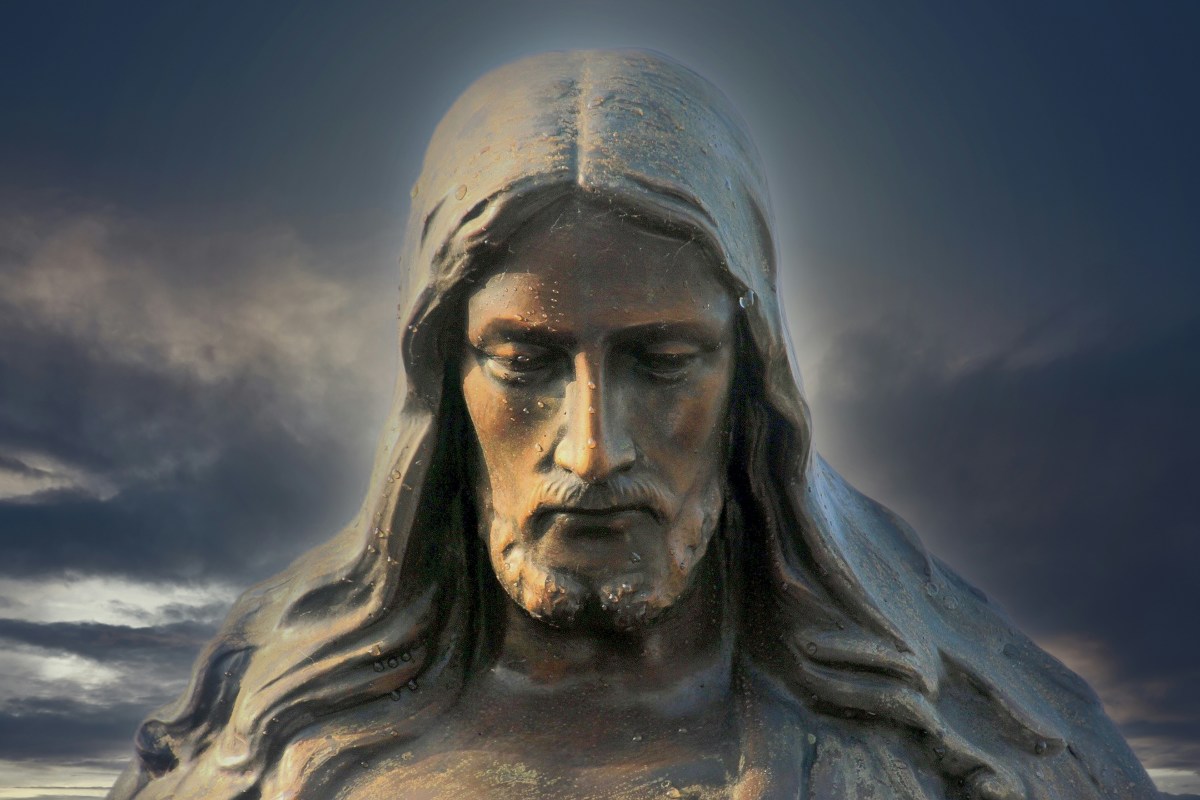Crisis in God 4: Wisdom of Kahana
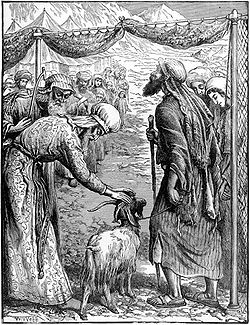
Now that I have the opportunity to do some writing again, I want to finish off this series of articles regarding the sacrificial cult and leave you with something to think about. The intent of these articles was not to make you all rush out, buy a goat and have a burnt offering in your backyard. It was always about the word of God versus the words of men, which will take precedent and whom do you choose to follow. Many of us choose the latter because it has become simpler, easier, more convenient, less controversial, etc. etc. Since when has our path from the days of Abraham onwards ever been simple and convenient? If anything, it has been a struggle since our conception and it was always about fighting for what you believe in and always being challenged in order to prove your unswerving loyalty to God. The sacrificial cult was merely an easy topic for me to choose because I know it will divide people according to their own personal beliefs and values. It was intended to do so in order to highlight the schism that exists within us and within our religion. God has provided enough commandments within our lives to ensure that we are and always will be a separate and distinct entity from other cultures. Rules which should they be followed will always earn us the enmity of other nations, other people because they will perceive us as different, unwilling to blend into their society wholly, and insular in our behaviours and attitudes. The majority of you probably resent that about our past, that what has made us different has earned us their scorn and condemnation and filled our history with repeated attempts of genocide. You are tired of being the victims and prefer to be on the side of the ‘winners’. That was your test and alas, many of you have failed. How many of you are willing to stand amongst a crowd of strangers and shout, “I am a Jew, I follow the will of Yahweh, who is my God and there is no other, and I would sooner die than abandon Him?” Or perhaps you practice a more conservative approach that when people ask, “What are you?” you answer with some trepidation, “I am an American, or a Canadian, or a Kiwi,” rather than let the Jew word pass from your lips because you fear that it might lead to their condemnation. Once you cross that bridge where you think it is necessary to hide from the world who you are, what you are, then you will be able to fully understand the intention of these articles. We will refer to the sacrificial cult as primitive, outdated, inhumane, unnecessary, revoked, and words of similar connotation in order to justify our failure to adhere to the commandment given by God. That was the subject matter of this series of articles, not the sacrifice per se. It was all about selectively choosing what we wish to practice and what we choose not to, in defiance of God, in defiance of our ancestors, but most of all because we want to change the faith to be a reflection of our own image, and that egocentric attitude is our greatest sin of all.
A PLEASING AROMA
Yes, we can point to abuses of the sacrifice to which God took no delight in at all. For example, Solomon's sacrifice of 142,000 animals at the dedication of the temple in 2 Chr 7:4-5. Solomon’s deluded pride and self emulation destroyed our nation. The drafted labour and high taxes that he forced upon the people, divided us, weakened us and condemned us to four hundred years of continual warfare until the Babylonians finally destroyed Solomon’s sin of pride. The sacrifice was never intended to be mass slaughter but a specific event that according to the book of Leviticus would let the people of Israel know that God still approved of them as his chosen people once the burnt offering became an aroma pleasing to God: “It is a burnt offering, an offering made by fire, an aroma pleasing to the Lord (Leviticus 1:9).
In fact, over and over again the people were commanded to present an offering made by fire as an aroma pleasing to the Lord (Numbers 29:36). This expression appears in Leviticus 1:9, 13, 17; 2:2, 9; 3:5; 4:31; 6:15, 21; 17:6; 23:18 and Numbers 15:3, 7, 10, 13f, 24; 18:17; 28:8, 24, 27; 29:2, 8, 13, 36. What we have to appreciate is that it was not the act of sacrifice that God ordained but more so it was this sign of a covenant that the people understood happened when the aroma converted from the sickly-sweet fragrance of burning flesh to something far more appealing without explanation other than it was the ‘Will of God.’
It did not take Solomon’s 142,000 animals to achieve this aroma, it only took one if God was pleased. Our practice of sacrifice was far more meaningful, with an actual outcome, unlike other cultures.
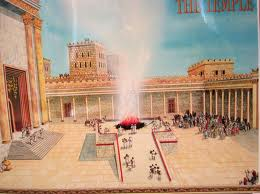
ADOPTED FROM EGYPT?
And to those that claim it was nothing more than a primitive practice that we brought out of Egypt mistakenly, then I will point out that one of the most recognized Egyptologists, Crabtree, pointed out in 2001, that Egypt was one of the few ancient cultures that did not practice animal sacrifice. In fact, Egyptians tended to look down on cultures that practiced this custom. In 2002 Hoffman wrote that although the Egyptians may not have sacrificed, they did mummify animals to serve as gifts for the gods or as preserved food for people in the afterlife. Very different from the sacrificial cult that we have mistakenly attributed to them as influencing our culture. The only time Egyptians practice large scale slaughter was for feasts, such as royal weddings, births, etc., and this was to feed the people, not their gods. The meat was given to the festival’s guests or as food to be distributed among the populace, a generous display of the Pharaoh’s piety and generosity. Distributing food throughout the different social classes was a political means of winning support.
The Egyptian perspective was different from all other surrounding cultures that did practice the custom of animal sacrifice. We must remember that our Exodus was from Egypt. Not Moab, not Babylonia, but Egypt. So all our generations of servitude were within the boundaries of a nation which did not practice this custom and therefore we were naïve to any such ritual. Therefore, the introduction of sacrifice was made during our travels through the desert and was as Moses clearly stated by the request of God. Moses explains to Pharaoh why the Israelites must be allowed to go out to the desert to offer their sacrifices to the Lord; their sacrifices would be “abominable” to the Egyptians (Ex. 8:25-27). In other words, Israel was to sacrifice to the Lord the very animals the Egyptians worshipped as gods. How is it then that those that have clearly expressed their contradictory views regarding the sacrifice, as being nothing more than the adoption of a ritual practice we were exposed to in Egypt, overlook this very significant piece of evidence from our own Torah that clearly states we were about to perform an original practice, completely contradictory to every influence that living in Goshen had upon us? There is no other explanation other than Yahweh told us to do so. We cannot claim it was all Moses’ doing because in essence he was far more Egyptian than Hebrew in his upbringing.
THE SACRIFICIAL ARGUMENTS
THOSE FOR:
And Abel, he also brought of the firstlings of his flock and of the fat thereof. And the LORD had respect unto Abel and to his offering.
And Noah built an altar unto the LORD; and took of every clean beast, and of every clean fowl, and offered burnt offerings on the altar. And the Lord smelled a sweet savour.
And he [God] said unto him [Abraham], Take me an heifer of three years old, and a she goat of three years old, and a ram of three years old, and a turtledove, and a young pigeon. And he took unto him all these, and divided them in the midst, and laid each piece one against another.
An altar of earth thou shalt make unto me, and shalt sacrifice thereon thy burnt offerings, and thy peace offerings, thy sheep, and thine oxen: in all places where I record my name I will come unto thee, and I will bless thee.
And thou shalt kill the bullock before the LORD....
And he shall kill the bullock before the LORD....
(See all of Chapters 1 - 9)
And ye shall offer ... an he lamb without blemish of the first year for a burnt offering unto the LORD....
Thou shalt sprinkle their blood upon the altar, and shalt burn their fat for an offering made by fire, for a sweet savour unto the LORD.
And thou shalt offer thy burnt offerings, the flesh and the blood, upon the altar of the LORD thy God: and the blood of thy sacrifices shall be poured out upon the altar of the LORD thy God, and thou shalt eat the flesh.
Acts 21:26
26Then Paul took the men, and the next day, purifying himself along with them, went into the temple giving notice of the completion of the days of purification, until the sacrifice was offered for each one of them.
The list is actually far longer as you can see from some of the quotes I use in previous paragraphs above and in prior articles but I really wanted to demonstrate that the request for sacrifice is in all five books of the Torah and can be found on numerous occasions through the rest of the Tanakh as well.
Now you might ask why I included the quote from Acts, a New Testament Christian book. Primarily because I am tired of Christians writing to me saying that their teacher, Yeshua ben Yosef, was the ultimate sacrifice and it was therefore no longer required after his death. So I use the quote from their true Church father of Christianity, Saul of Tarsus, known better as Paul, who single-handily proscribed Christian beliefs, consolidating them into a distinct and separate sect from Judaism. I use his own writings in order to demonstrate that this belief in the ‘last and ultimate sacrifice’ was not part of the original and core Christian beliefs. Here we have Paul and a group of his religious followers (ie. Nazoreans, Minim, Christians) all having a personal donation of an animal sacrificed on their own behalf. Since this was well over a decade after Yeshua’s death, then we can only presume that Paul still believed in the sacrificial cult, that Christianity still maintained and ordained sacrificial practices in its early doctrines and at no time was Yeshua seen as the last sacrifice. Christians really do need to read their own books more closely.
THOSE AGAINST:
Psalm 40:6
Sacrifice and
offering thou didst not desire.
Will I eat of the flesh of bulls, or drink the blood of goats?
For thou desirest not sacrifice ... thou delightest not in burnt offerings.
I delight not in the blood of bullocks, or of lambs, or of he goats.
He that killeth an ox is as if he slew a man.
Your burnt offerings are not acceptable, nor your sacrifices sweet unto me.
Jeremiah 7:22-23
22"For I did not speak to your fathers, or command them in the day that I brought them out of the land of Egypt, concerning burnt offerings and sacrifices.
23"But this is what I commanded them, saying, 'Obey My voice, and I will be your God, and you will be My people; and you will walk in all the way which I command you, that it may be well with you.'
Shall I come before him with burnt offerings, with calves of a year old? Will the LORD be pleased with thousands of rams?
Back in Crisis in God 3 I provided a clearer understanding of what was being said by Isaiah and Jeremiah in that it was not the sacrifice they were condemning but the hollowness and false piety that the ceremony that had been incorporated into the ritual. It was their intent to condemn the hypocrisy of Men, not the commandments of God.
As for the Psalms, these are intended as songs and poems that are making statements that should be considered as relevant to some of the lyrics of our modern day music. Hardly, worthy for consideration as statements of fact.
IN CONCLUSION
As I mentioned this will be the last article in this series. Hopefully it has had the effect of making you ask questions of your own beliefs. That you can now look at your own religious practices with fresh eyes and wonder whether you perform a certain act or ritual according to the Torah or according to the doctrines of men in contradiction to the Torah. Once you begin to ask these questions, then you will appreciate the conflict that has existed for thirteen hundred years between Karaite and Rabbinical Jews.
Shalom Aleichim,
Avrom Aryeh-Zuk Kahana
